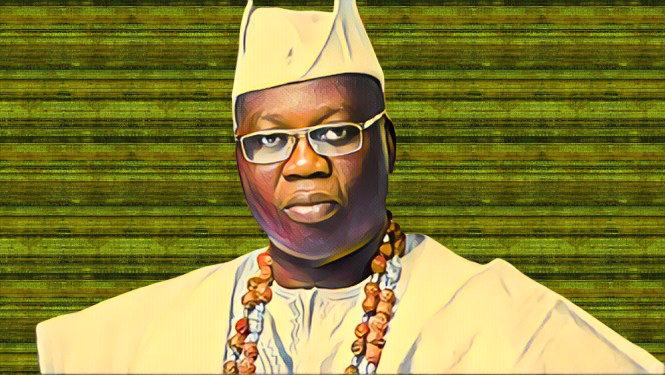Gani Adams, the Aare Ona Kakanfo of Yorubaland, has recently emphasized that restructuring is the crucial step needed to resolve Nigeria’s deepening insecurity issues. He expressed these views in Lagos during the celebration of his 6th installation anniversary. Adams’ call for restructuring aligns with the growing consensus among various stakeholders in the nation who see decentralization and the devolution of powers as essential for addressing the multifaceted security challenges facing Nigeria.
Adams, during the event, underscored his unwavering commitment to the unity, peace, and progress of the South-West and the entire Yoruba race. He reflected on his role as the generalissimo, acknowledging the responsibilities it entails in safeguarding the interests and welfare of the Yoruba people. He asserted that his actions and decisions are always in line with the best interests of his people.
In his speech, Adams reiterated his firm belief in the Yoruba race, recognizing their historical significance and the role they have played in shaping Nigeria. He stated, “I will always protect the interest of the Yoruba race, anytime, anywhere. That is the first and fundamental duty of the Yoruba generalissimo. What we are doing here today is never a jamboree but a reflection of the sanctity and importance of the stool. It is not because we like partying but because it is the tradition of the position.”
Highlighting the recent appointments within the Aare-in-Council, Adams explained that these were strategic decisions aimed at repositioning the office of the Aare Ona Kakanfo. The inauguration of new chieftains, including Chief Oluwole Adedeji as the Jagunmolu Aareonakakanfo of Yoruba land, Chief Alice Eniola as Yeye Gbareniyi, and Chief Sakiru Adedayo Omoyeni as the Opeluwa Aareonakakanfo of Yoruba land, is seen as a move to strengthen the council’s capacity in making key decisions that favor the Yoruba race.
Adams emphasized the collaborative nature of his role, acknowledging that the challenges ahead require collective efforts and wise counsel. He stated, “As the Aare Ona Kakanfo of Yoruba land, I cannot do it alone. I will need people who can assist in making key decisions in the interest of the race. So the Aareonakakanfo chiefs in council are products of my good offices. And they will complement my efforts and roles in advancing the course of the race.”
Adams’ stance on restructuring as a solution to Nigeria’s security crisis resonates with the broader public discourse on the need for systemic changes in governance and resource management. This approach, he argues, would address the root causes of insecurity, such as regional disparities, marginalization, and unequal resource distribution. By advocating for a more decentralized and locally responsive governance structure, Adams believes that the nation can effectively tackle the issues of banditry, kidnapping, and other forms of insecurity that have plagued various parts of the country.
Furthermore, Adams’ call for restructuring is not just about administrative changes; it is deeply rooted in the historical context of Nigeria’s diverse ethnic and cultural composition. He views restructuring as a pathway to achieving equitable representation and empowerment of all ethnic groups within the nation. This, he asserts, is vital for fostering national unity and sustainable development.
Adams’ message comes at a time when Nigeria faces unprecedented security challenges, with increasing cases of banditry, kidnapping, and terrorism. His voice adds significant weight to the national conversation on how best to navigate these challenges and create a more secure and prosperous future for all Nigerians.
In conclusion, Gani Adams’ advocacy for restructuring as a solution to Nigeria’s security problems highlights the need for a holistic and inclusive approach to governance. By bringing together different voices and perspectives, particularly from traditional leaders like himself, Adams is contributing to a critical national dialogue that seeks to address the underlying issues contributing to insecurity. His leadership and commitment to the Yoruba race, as well as his broader vision for Nigeria, serve as a beacon of hope for many who aspire for a more stable, secure, and equitable nation.



